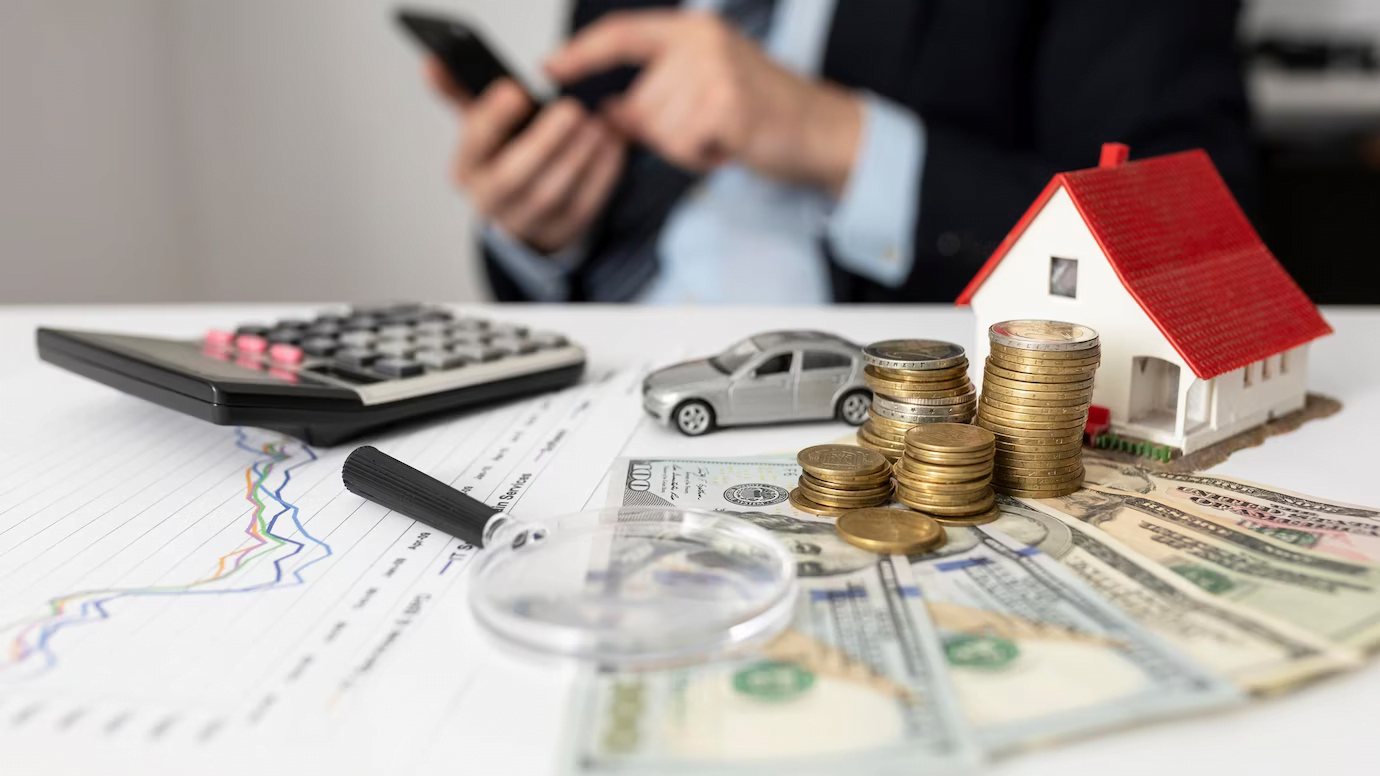
In the intricate financial landscape of Singapore, the Debt Repayment Scheme (DRS) is a significant measure for many individuals struggling with overwhelming debt. Launched by the Ministry of Law in 2009, the DRS is an alternative to bankruptcy proceedings, allowing individuals with unmanageable debt to restructure their financial affairs.
This crucial scheme is designed to offer a means for debt-laden individuals to negotiate their debts, helping promote a responsible borrowing and lending culture in Singapore.

Types Of Debt In Singapore
Consumer Debt (Credit Cards, Personal Loans, etc.)
Consumer debt, primarily consisting of credit card debt and personal loans, is quite common in Singapore. The ease and convenience of using credit cards often lead individuals into a cycle of debt, especially when minimum payments are not made promptly, leading to high interest and late payment charges. Personal loans for varying needs, from home renovation to medical expenses, can accumulate over time, contributing to the debt burden.
Housing Loans And Mortgages
With a homeownership rate surpassing 90%, Singapore has one of the highest homeownership rates in the world. This fact naturally leads to a widespread prevalence of housing loans and mortgages. Given the sizable property prices in Singapore, these loans are typically long-term and often constitute a significant portion of an individual’s total debt.
Education Loans
As education costs continue to rise, more and more Singaporeans are resorting to education loans to fund their or their children’s higher education. Whether for a local institution or an overseas university, these loans add to the total personal debt burden while essential for securing future prospects.
Business Loans And Corporate Debt
For many entrepreneurs and business owners, business loans are necessary to secure capital to establish or expand operations. However, these loans can become a substantial financial burden if the business faces unexpected challenges or fails to generate the anticipated profits, pushing business owners into personal debt liability.
Understanding Debt Repayment
Effective debt management begins with understanding your financial status. Creating a budget and tracking expenses allows you to visualise your income and expenditure. It identifies areas where you can cut back. By monitoring your monthly income and where your money is going, you can allocate funds towards debt repayment more efficiently.
Strategies For Prioritising And Managing Debt
Addressing and managing debt effectively requires a strategic approach. Several techniques can help individuals regain control over their financial health:
Debt Snowball Method
This approach to debt repayment involves first paying off debts with the smallest balances while maintaining minimum payments on larger debts. The psychological boost of seeing a debt fully paid off can be a powerful motivator, encouraging individuals to maintain their repayment efforts.
Debt Avalanche Method
Conversely, the Debt Avalanche method emphasises clearing high-interest debts first. You can reduce the total amount paid over time by tackling the most costly debts early on.
Consolidation And Refinancing Options
This debt management or debt consolidation plan involves consolidating multiple debts into one larger loan or refinancing existing loans to secure a lower interest rate can simplify the repayment process. These strategies can lower monthly payments, making debt management more manageable.
Government Initiatives And Support
Singapore’s government is proactive in assisting individuals struggling with debt.
Debt Management Programmes
Through various financial institutions, the government offers structured debt management programmes such as the DRS Singapore. These allow individuals to manage and repay their debts over a reasonable period without initiating fresh bankruptcy proceedings. The DRS works on the principle of the collective agreement between the debtor and creditors, with the Official Assignee overseeing the execution of the proposed debt repayment plan.
Debt Restructuring And Repayment Plans
The DRS functions on a debt restructuring basis, consolidating unsecured debts and formulating a structured repayment plan. This proposed repayment plan is based on the debtor’s income and reasonable living expenses, ensuring the repayment scheme is within their means.
Assistance For Vulnerable Individuals And Families
The Singaporean government provides specific assistance schemes for individuals and families who are particularly vulnerable due to low income, unemployment, or other circumstances. These include financial assistance programmes, subsidies, and grants, aimed at helping these individuals manage their financial affairs more effectively.
Role Of The Credit Counselling Singapore (Ccs) In Providing Debt Counselling And Support
Credit Counselling Singapore (CCS) is a non-profit organisation that provides essential services to individuals grappling with debt. Their role involves offering financial counselling, helping individuals to understand their financial situation and providing guidance on managing debts. They also work with financial institutions to facilitate the DRS and determine feasible debt repayment schemes and plans for individuals.
Bankruptcy And Debt Repayment Scheme
Bankruptcy is a legal status for individuals or businesses unable to repay their debts. In Singapore, when an individual is declared bankrupt, their assets are seized and managed by the Official Assignee to repay creditors. The process can have severe implications, including the loss of control over financial matters, restrictions on overseas travel, and a significant impact on the debtor’s property and credit reputation.
The Debt Repayment Scheme (DRS) in Singapore is designed as a gentler alternative to bankruptcy, particularly suitable for individuals with significant unsecured debt but are still capable of repaying these debts over time.
Under the DRS, instead of initiating fresh bankruptcy proceedings, a repayment plan is devised based on the debtor’s financial capacity. This proposed debt repayment plan consolidates all unsecured debts, and suitable repayment schedule is scheduled over a fixed period, typically up to 8 years.
A significant advantage of the DRS over bankruptcy is that it enables individuals to avoid the stigma and harsher restrictions associated with bankruptcy. The DRS provides a structured pathway towards regaining financial health, without the negative implications of a bankruptcy declaration. However, if the debtor fails to comply with the DRS terms, the debtor may be made bankrupt.
It’s worth noting that both options should be considered seriously, and professional advice from bankruptcy lawyers and agencies such as Credit Counselling Singapore (CCS) can be helpful in determining the best course of action based on an individual’s specific financial circumstances.
Consequences Of Failing To Repay Debt
Failure to address and manage debt effectively can have serious consequences.
Impact On Credit Scores And Future Borrowing Opportunities
Consistent failure to repay debt can severely impact an individual’s credit score. A low credit score can limit future borrowing opportunities, as financial institutions view such individuals as high-risk borrowers.
Legal Actions And Debt Collection Processes
If debts remain unpaid, creditors may resort to legal actions and collection processes. This could lead to the individual facing bankruptcy proceedings, which would have long-lasting effects on their financial and personal life.
Emotional And Psychological Toll Of Persistent Debt
Persistent debt and its associated stress can lead to significant emotional and psychological strain. The constant worry over debt can lead to mental health issues like anxiety and depression, affecting an individual’s quality of life.
Conclusion On Debt Repayment Scheme In Singapore
In the face of overwhelming debt, schemes like the Debt Repayment Scheme in Singapore can serve as a lifeline. By providing a structured path towards debt management, the DRS offers hope to individuals who might otherwise face the harsh consequences of bankruptcy.
Understanding the eligibility criteria and the process of applying for such schemes is essential. Alongside these government initiatives, personal responsibility in managing finances and proactive debt repayment can help individuals regain control over their financial health and work towards a debt-free future.
If you or anyone you know is having issues with their debt, they may be a prime candidate for a debt repayment scheme. Speak with one of our highly experienced criminal lawyers in Singapore for the best legal advice. For assistance with family-related legal matters, including divorce, our divorce lawyers in Singapore are also available.
Contact us today.
Frequently Asked Questions About Debt Repayment Scheme In Singapore
Can Secure Debts, Like A Mortgage, Be Included In The Debt Repayment Scheme?
No, the DRS is designed to address unsecured debts. This scheme does not include secured debts, such as a mortgage.
What Happens If My Circumstances Change After I’ve Entered The Debt Repayment Scheme?
If your financial circumstances change significantly after you’ve entered the DRS, it’s essential to inform the Official Assignee immediately. The Official Assignee may then revise your debt repayment plan accordingly.
How Long Does The Debt Repayment Scheme Typically Last?
The duration of the DRS is tailored to the debtor’s circumstances but usually lasts between three to eight years.
Can I Still Apply For The Debt Repayment Scheme In Singapore If I’m Self-Employed?
Self-employed individuals can apply for the DRS, provided they meet the eligibility criteria.
Does Entering The Debt Repayment Scheme Affect My Employment?
Entering the Debt Repayment Scheme in Singapore generally does not directly affect your employment. The scheme is designed to help individuals manage their debts and work towards repayment. However, it is essential to note that each employment situation may vary, and it is advisable to consult with your employer or human resources department to understand any specific policies or implications that may apply.
What Happens To My Credit Card Accounts When I’m Under The Debt Repayment Scheme?
Typically, all your unsecured credit facilities with financial institutions will be suspended when you’re under the DRS. This means you cannot use your credit cards or obtain new unsecured credit during this period.